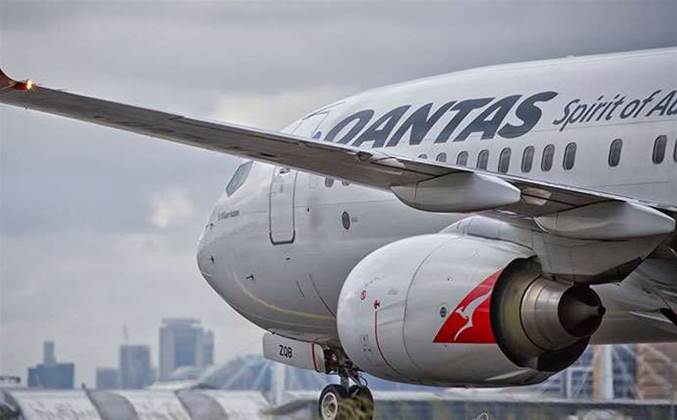Qantas will rely more heavily on self-service channels for airport check-ins, booking changes and payments, as it looks to make the low-contact airport environment introduced in response to Covid permanent.

The airline plans to permanently close dedicated service and sales desks and reduce frontline staff at Australian airports as part of a major restructure of its customer service functions.
It will instead introduce roaming teams to support “time sensitive flight management and exceptions” and “ancillary and excess baggage payments through a mobile processing device”.
While some form of check-in desk will continue to be staffed, Qantas has stressed that kiosks, its website and app will increasingly be used for check-in, bookings and excess baggage payments.
Customers will also be expected to “self-manage non-urgent fares and ticketing through Qantas.com”, with other more urgent booking queries to be directed to contact centre staff.
“As an outcome of Covid, there’s been a change in the way our customers want to interact with us,” Qantas’ Australian airports executive manager Colin Hughes said in an email seen by iTnews
“More people are choosing to self-manage their bookings, check in and boarding processes.”
“Their feedback, which is understandable in this environment, is that they prefer digital interactions over face to face contact.”
Hughes said Qantas also plans to invest in “technology that will assist in tracking baggage and provide self-serve recovery options for customers”, though did not elaborate.
Australian Services Union assistant secretary Emeline Gaske has slammed the move, warning customers to expect delays and lost baggage if customer service workers are removed.
“They’re abolishing the sales desk and the service desk including for premium and frequent flyers, meaning everything will be self-service and if you have a problem – you’re on your own,” she said.
“Travellers will be forced to do everything themselves online, even if there are cancellations or delays where previously people have been able to ask a person to help.”
Gaske also claimed Qantas’ technology was not up to the task of replacing staff, which she said was the reason why a “trial of the proposal was abandoned in February”.
“They’re reheating this proposal at the worst possible time – during a pandemic, in a busy holiday season, as borders are starting to re-open. It’s a recipe for disaster,” she said.
“Whatever can be put online without massive disruption to passengers has already been done. What they’re removing now is the ‘last resort’ customer service people need when all else fails.”

























